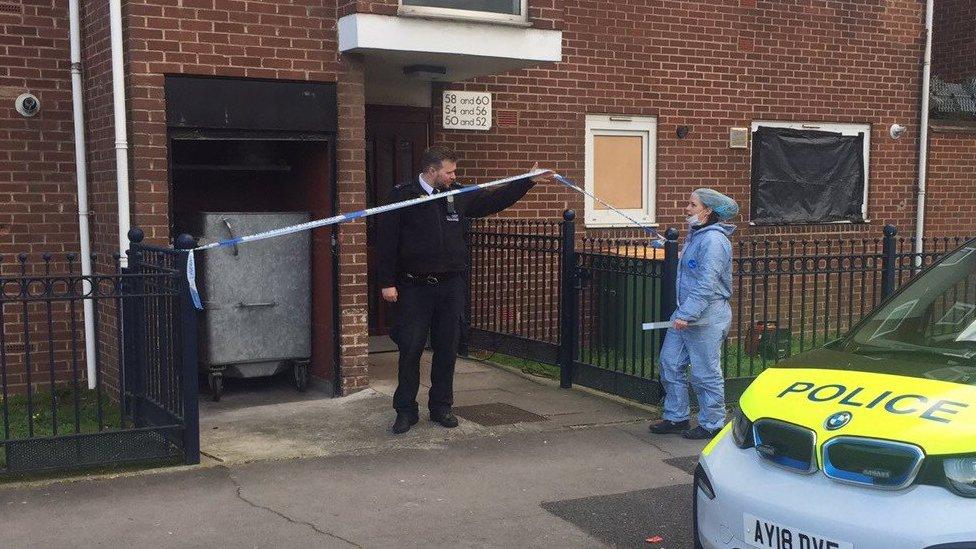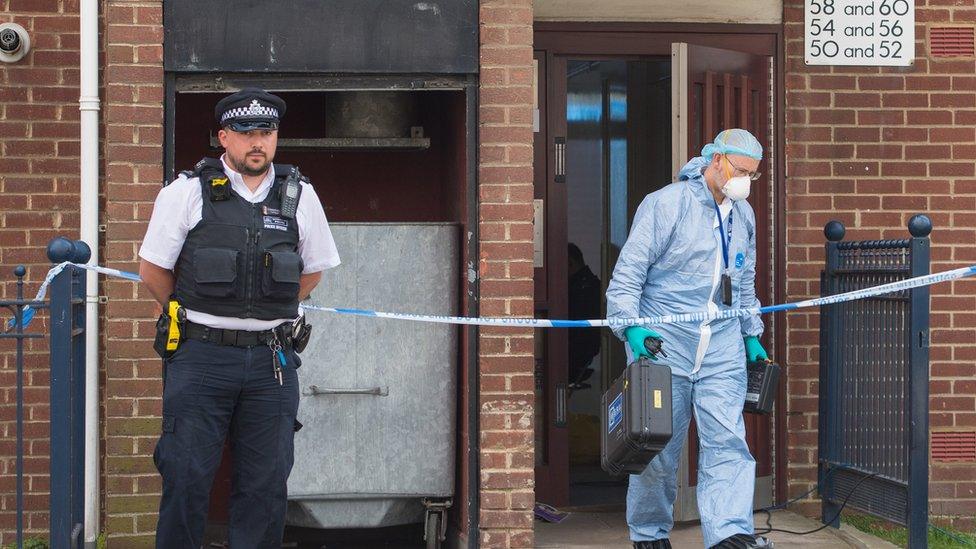Murder accused 'kept bodies in Canning Town freezer for months'
- Published

One of the women found in a flat in east London was mother-of-three Mihrican Mustafa
A "manipulative" and "controlling" man murdered two vulnerable women and hid their bodies in a chest freezer at his flat, a court has heard.
Zahid Younis, 35, is accused of subjecting Henriett Szucs and Mihrican Mustafa to "very significant violence" and storing their remains for months.
They were discovered when police went to the address in Canning Town, east London, looking for Mr Younis, Southwark Crown Court heard.
He denies murder.
Prosecutor Duncan Penny QC said the police officer who made the "very grim discovery" in April 2019 had used a crowbar to force open the lid of the freezer at Mr Younis's one-bedroom property.
"There were flies forming around the freezer and items including a zimmer-type frame had been stacked on top," he said.

The entrance to the block of flats in Vandome Close was cordoned off while investigations take place
The remains of Ms Szucs, who had not been seen for nearly three years, and Ms Mustafa, who had disappeared in May 2018, were later identified.
Mr Penny said both women had been living "somewhat chaotic lives", were homeless at various times, and had faced an ongoing "struggle" with an addiction to Class A drugs.
"The evidence demonstrates that both were closely connected to the defendant in the days and weeks before they were last seen," he said.
Mr Penny said the defendant was "a man with the ability and the disposition to manipulate and to seek to control vulnerable women - capable of seeking to dominate them, to subject them to his will and if necessary, of resorting to violence".
'Foul smell'
The women, both in their 30s at the time of their disappearances, had suffered numerous rib fractures, while Ms Szucs had sustained "dreadful" head injuries and Ms Mustafa's sternum and larynx had been fractured, Mr Penny said.
He said the two were known to have associated with Younis in the weeks leading up to their disappearances, and belongings of each of them were found in the flat.
Both were "vulnerable women living somewhat chaotic lives" including periods of homelessness and class A drug addiction, Mr Penny added.
Ms Szucs' blood was found on the carpet of the flat and Ms Mustafa's fingerprint on the oven, Mr Penny said.

Police found the women's remains at a flat in Vandome Close
The court heard that it appeared there had been periods when the electricity had been disconnected, which had led to some decomposition of the bodies and a "foul smell" in the flat.
According to the prosecution, when Mr Younis was arrested, three days after the bodies were found, he told police: "It's my house, it's my problem. No one else is involved."
But he answered "no comment" to questions during police interviews.
The trial continues.